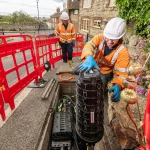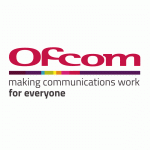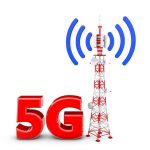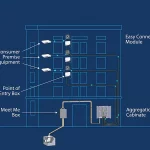EU Propose Spectrum Sharing to Handle WiFi and Mobile Broadband Demand
The European Commission (EC) has today moved to tackle the rising demand for Mobile Broadband and WiFi data traffic, which doubles every year and could soon reach over 1 Trillion MegaBytes per month in Europe alone, by removing the regulatory barriers that prohibit radio spectrum sharing and White Space tech.
The idea behind this is to make sure that new technologies, such as White Space (i.e. long-range rural wireless broadband networks that dynamically operate in unused frequencies that exist between Digital TV channels) devices that can operate in licence-exempt bands, are given the correct legal clearance and incentives at EU level so that they can be adopted by national regulators (e.g. Ofcom in the UK).
Advertisement
Crucially the EC states that this must all be achievable “without interfering with existing rights or downgrading quality of service” and will also apply to other forms of wireless communication (e.g. electricity grids and industrial automation), not just those associated with broadband internet access.
Neelie Kroes, Vice-President of the EC’s Digital Agenda, said:
“Radio spectrum is economic oxygen, it is used by every single person and business. If we run out of spectrum then mobile networks and broadband won’t work. That is unacceptable, we must maximise this scarce resource by re-using it and creating a single market out of it. We need a single market for spectrum in order to regain global industrial leadership in mobile and data, to attract more R&D investments.”
Kroes further warns that there is “no vacant spectrum left and the cost of re-allocating spectrum to new uses is high“, especially if freeing up new spectrum results in current users being forced to switch-off their service.
Sharing could prove to be the solution to an “increasingly scarce resource“, with mobile broadband traffic alone set to grow by 26% a year until 2015. By then it’s estimated that over 7 billion phones, tablet computers and other mobile devices will be connectable to the Internet.
The EC’s Key Regulatory Proposals (Radio Spectrum Sharing)
1. Regulators to support wireless innovation by monitoring and potentially extending the harmonised internal market bands in which no licence is required (so-called licence-exempt bands) through appropriate measures under the Radio Spectrum Decision (676/2002/EC),
2. Fostering consistent regulatory approaches across the EU for shared rights of use that give incentives and legal certainty to all users (current and new) who can share valuable spectrum resources.
It should perhaps be said that Ofcom was one of the first national regulators to propose the use and development of White Space (IEEE 802.22) technology, which has already been trialled several times in the UK by a number of operators including BT, Microsoft and Neul etc. (here).
Advertisement
Sadly the trials haven’t always produced the best results (example) but it’s still early days for the new technology and the potential for faster speeds with better coverage remains significant. By giving European regulators more flexibility the EC will be helping to develop a market for new solutions that could end up benefitting rural areas and the wider economy.
The EC must now seek support from both the European Parliament (EP) and the Council before its new measures can be formally introduced.
Mark is a professional technology writer, IT consultant and computer engineer from Dorset (England), he also founded ISPreview in 1999 and enjoys analysing the latest telecoms and broadband developments. Find me on X (Twitter), Mastodon, Facebook, BlueSky, Threads.net and Linkedin.
« UPD UK ISP BE Broadband Offers One Year of Half Price Internet Access

















































Comments are closed